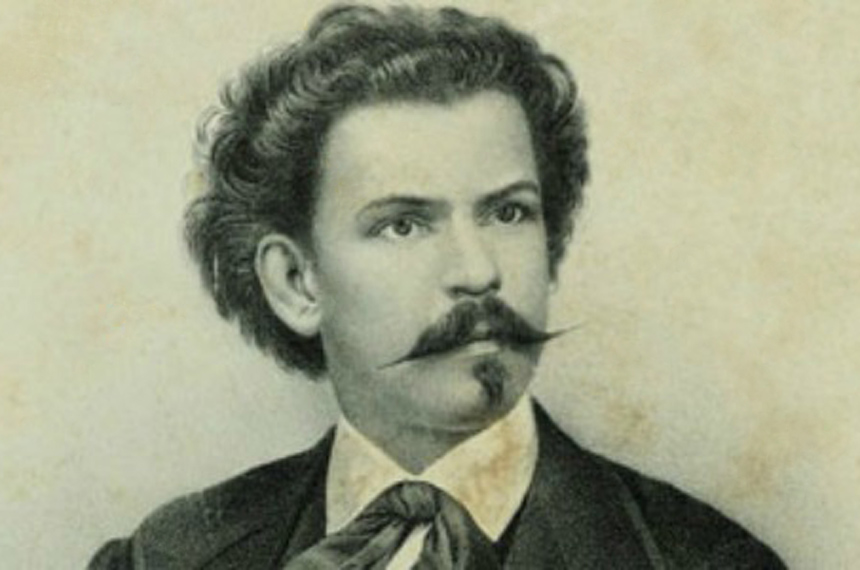Carlos Gomes: A Complete Biography
Introduction
Antônio Carlos Gomes (1836–1896) was one of Brazil’s greatest classical composers and the first New World composer to gain international acclaim in the European operatic world. He is best known for his opera O Guarani, which became a major success at La Scala in Milan, making him the first South American composer to have an opera performed at the legendary theater. Born during Brazil’s imperial era and active through the country’s transition to a republic, Gomes blended European operatic traditions with Brazilian themes and indigenous elements. His work represented a significant step toward forging a national Brazilian music identity.

Childhood
Carlos Gomes was born on July 11, 1836, in Campinas, São Paulo, Brazil. He was the son of Manuel José Gomes, a local bandmaster and music teacher, and Fabiana Maria Jaguari Cardoso. Carlos grew up in a musically active household. From an early age, he showed great promise in music, receiving his first lessons from his father, who trained him in the basics of harmony, composition, and several instruments, including piano and violin.
According to The Music of Brazil by David Appleby, Gomes gave his first public performance at age nine, impressing audiences with his natural talent. His musical gifts were further nurtured by his older brother, José Pedro de Sant’Ana Gomes, who was also a composer and conductor.
Youth
As a teenager, Gomes continued his studies in Campinas, performing and composing for local orchestras. In 1859, he moved to Rio de Janeiro, then the capital of the Empire of Brazil, where he was admitted to the Imperial Conservatory of Music. There, he studied under prominent teachers such as Joaquim Manoel da Câmara and Francisco Manuel da Silva, the composer of Brazil’s national anthem.
While at the conservatory, Gomes composed several pieces, including A Noite do Castelo (1861), which earned him praise from Emperor Dom Pedro II. The emperor, impressed by Gomes’s talent, personally sponsored his studies in Europe—a rare honor for a Brazilian musician at the time.
Adulthood
In 1864, Gomes traveled to Milan to study at the Milan Conservatory, one of the most prestigious music schools in Italy. He immersed himself in the Italian operatic tradition, studying the works of Verdi and Donizetti and refining his compositional technique.
His first Italian opera, Joana de Flandres (1866), was followed by his masterpiece, O Guarani (1870), based on the novel by Brazilian author José de Alencar. Premiered at La Scala, the opera was a resounding success, earning Gomes international fame. The triumph marked a historic moment: he became the first non-European composer to break into the elite circle of European opera.
According to Heitor Villa-Lobos: The Search for Brazil’s Musical Soul by Gerard Béhague, Gomes remained active in Italy for many years, writing additional operas such as Fosca (1873), Salvator Rosa (1874), Maria Tudor (1879), and Lo Schiavo (1889), the last of which directly addressed themes of slavery and freedom—topics deeply relevant in Brazil, where slavery had only recently been abolished.
Despite his growing international status, Gomes remained connected to his homeland. In 1889, after Brazil became a republic, he returned to assume the post of director of the Belém Conservatory in the northern province of Pará. There, he also wrote patriotic works and devoted himself to music education.
Major Compositions
Carlos Gomes’s oeuvre includes operas, sacred music, chamber music, and orchestral works. His major compositions include:
- O Guarani (1870): His most celebrated work, combining European operatic structure with Brazilian indigenous themes. It remains his best-known opera and is considered a landmark in Brazilian classical music.
- Fosca (1873): A dramatic opera in the verismo style that explores jealousy and vengeance.
- Salvator Rosa (1874): Based on the life of the Neapolitan painter, this opera features lush orchestration and complex vocal parts.
- Maria Tudor (1879): A historical opera based on the play by Victor Hugo, it deals with politics, power, and betrayal.
- Lo Schiavo (1889): A politically charged opera that condemns slavery. Though set in an exoticized world, it was seen as a veiled criticism of Brazilian society and gained importance for its social message.
Beyond opera, Gomes composed religious works like the Missa de São Sebastião and smaller instrumental pieces.
Death
Carlos Gomes’s later years were marked by declining health and financial troubles. In 1896, suffering from throat cancer, he returned to Belém, where he passed away on September 16 at the age of 60. His death was mourned across Brazil and Italy. As a mark of his national significance, his remains were later transferred to a specially built mausoleum in his hometown of Campinas.
Conclusion
Carlos Gomes occupies a unique position in music history as the first Latin American composer to achieve success in European opera houses. His works are a testament to the fusion of Brazilian spirit with European form, and his legacy paved the way for future generations of Latin American composers. Though his popularity waned in the 20th century, a revival of interest in Gomes has taken place in recent decades, spurred by new recordings and performances. Today, he is remembered as a cultural pioneer and a symbol of Brazilian musical ambition on the global stage.

Comments are closed